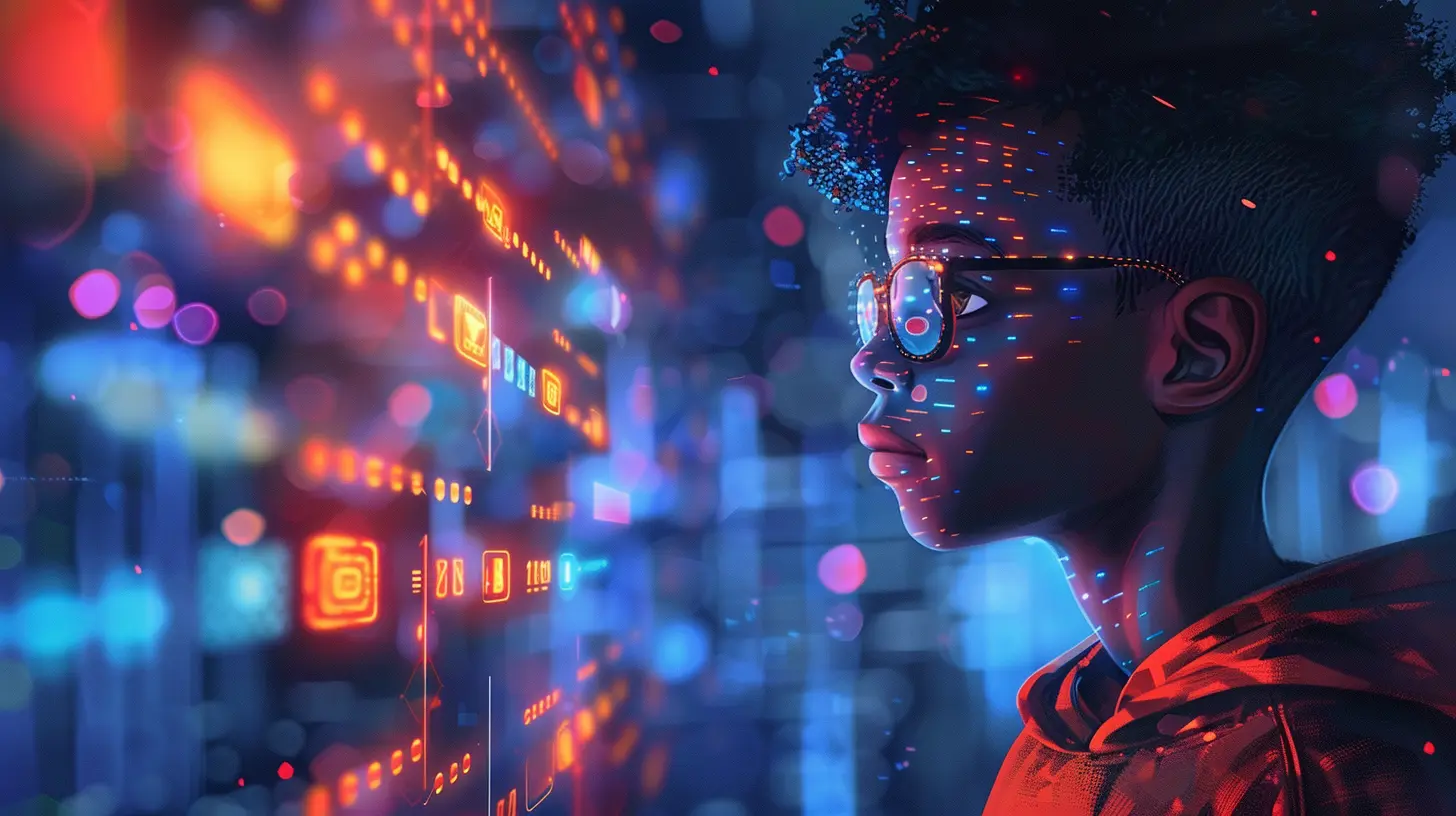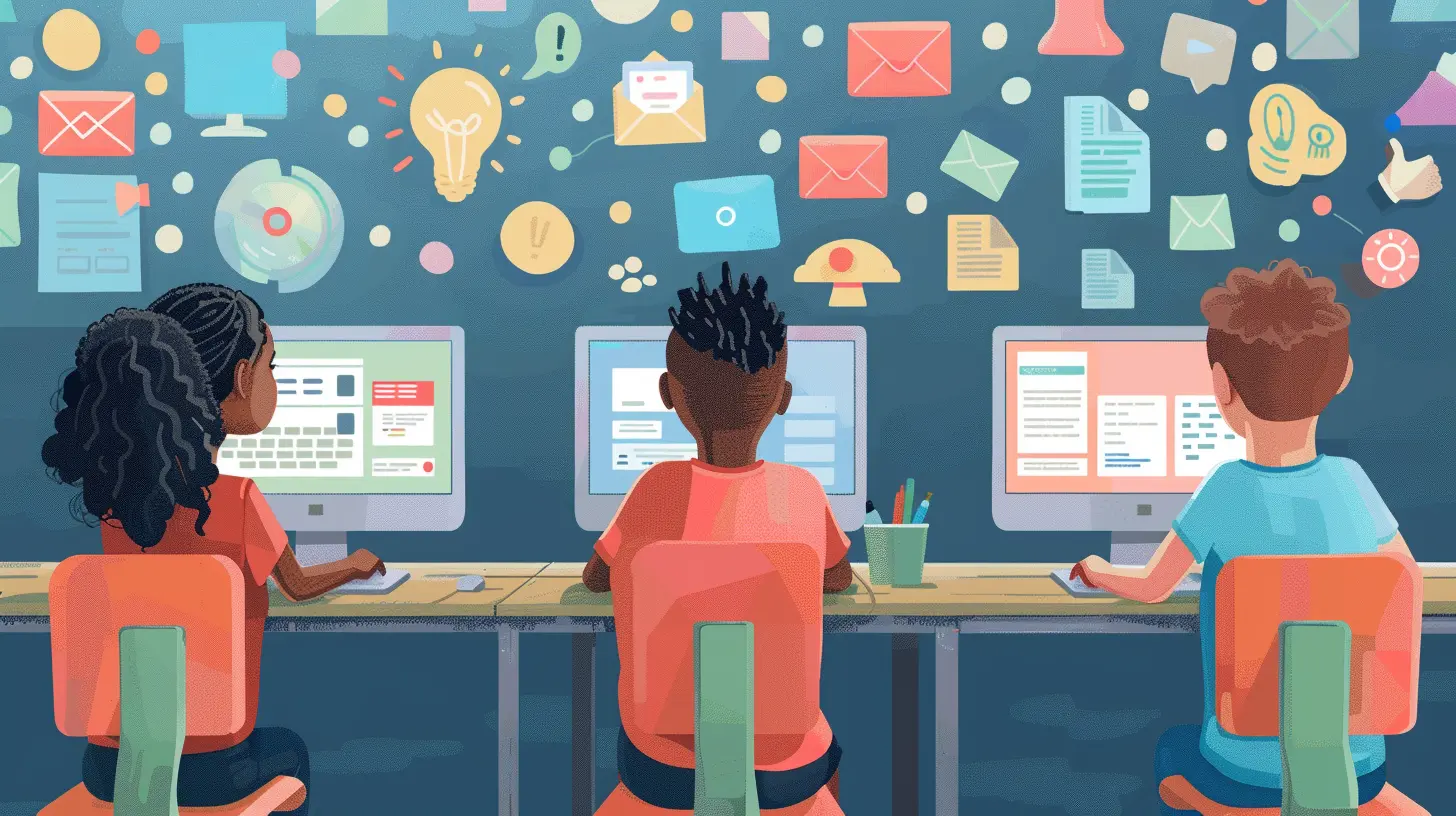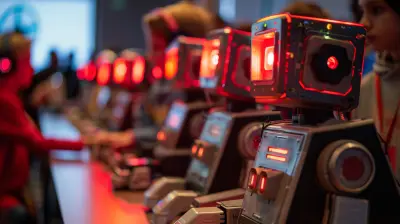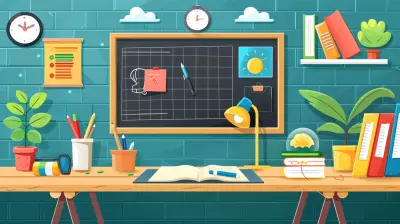29 October 2025
Technology is no longer just about building the next billion-dollar app or creating the fastest computer. These days, it's also about using those skills to make the world a better place. And that’s where coding meets social justice.
Imagine giving students the power to not only learn how to code but also understand how to use that skill for something deeper—to fight inequality, to shine a light on injustice, and to help those whose voices are so often ignored. That’s what we're diving into today.
Let's talk about how coding can be a modern-day superpower, especially when placed in the hands of students who are eager to change the world around them.
What Does Coding Have to Do With Social Justice?
At first glance, “coding” and “social justice” might seem like they live in two completely different worlds. One sounds technical while the other sounds emotional and societal. But when we peel back the layers, you'll see how they’re more connected than you'd think.Coding is about problem-solving. Social justice is about addressing problems that affect people every day. When you put those two together? You can build real solutions to real issues—whether it's designing an app that reports hate crimes, creating platforms for marginalized voices, or analyzing data to prove patterns of injustice.
It's like giving students a toolbox packed with digital wrenches, hammers, and schematics that let them build systems for good.
Why We Should Teach Students to Code for a Cause
Now more than ever, young people want to make a difference. They're already leading protests, organizing online campaigns, and speaking out on social media. So why not give them the technical fluency to back their passion with action?Teaching students to code for social good brings a few key benefits:
- Empowerment: When students realize they can build something impactful, they gain confidence in their abilities—not just as coders but as change-makers.
- Critical Thinking: Coding helps build logic and analytical skills. When students apply these to social issues, they learn to think critically about causes and solutions.
- Career Skills with Heart: In the tech world, ethics and empathy are becoming just as important as technical ability. Coding for social justice builds both.
And let's be honest—students aren't just learning for a test anymore. They want to feel like what they’re learning actually matters.
Real Examples of Coding Used for Social Justice
Let’s make this more tangible. Here are a few incredible projects where coding and compassion teamed up to shake the world (or at least a corner of it).1. Apps That Report Harassment in Real-Time
Think of something like “Hollaback!”—a platform that lets users report incidents of street harassment. It collects data and maps patterns, encouraging communities to take action. That’s code in action for change.2. Tools to Support the Homeless
There are apps that help those without homes find nearby shelters, food services, and hygiene stations. Developers worked side-by-side with local communities to build what was actually needed.3. Data Storytelling
Organizations like Data for Black Lives use statistics and machine learning to highlight racial disparities in areas like healthcare and policing. Coding helps bring hidden truths to light with visual storytelling.Each of these started with a simple idea: “There’s a problem. Can we use tech to fix it?”
How Schools Can Start Teaching Coding With Purpose
Alright, it sounds awesome. But how do we actually get schools and educators to bring this kind of learning into the classroom?Here are a few practical ideas:
Integrate Social Topics into Coding Curriculums
Instead of asking kids to code the next calculator or to-do list, schools can design projects around real issues. For example, ask students to build:- A website that raises awareness for mental health
- A chatbot that helps victims of bullying
- An app that shows local environmental problems
Let them choose a problem that matters to them personally—that’s where the passion kicks in.
Encourage Group Projects Around Community Needs
Students can team up to research an issue in their area, interview people affected by it, and then build a digital solution. Not only are they learning coding and research skills, but they’re also developing empathy.Partner With Nonprofits for Impact-Based Projects
Imagine a classroom working directly with a nonprofit to build a tool they desperately need. That’s not just real-world experience. That’s real impact.Coding Teaches More Than Just Tech Skills
Here’s something that often gets missed in STEM education: coding isn't just about computers.When students work on coding projects tied to social justice, they learn:
- Empathy: Understanding the user’s point of view
- Communication: Working with diverse teams and audiences
- Resilience: Debugging isn’t just for code—it’s for life
- Creativity: Finding new solutions to old problems
In that way, coding becomes more than an academic subject. It becomes a life skill.
The Role of Teachers and Mentors
Let’s not forget the gatekeepers of young minds—teachers.If you're an educator, you play a major role in not just teaching the syntax of Python or JavaScript but also in showing students that what they create can matter. Ask your students:
- “What problems do you see in your community?”
- “How could you design a tech solution for that?”
- “Who would benefit from your project?”
Create a safe space for these conversations in your classroom. You might be surprised at how deeply students are thinking about the world.
Offering Accessible Tools and Resources
One challenge we can’t ignore is access. Not all students have laptops, WiFi, or exposure to coding. That’s a huge barrier to equity.The good news? There are tons of free and low-cost tools out there that schools and parents can take advantage of:
- Scratch: Great for beginners (especially younger students)
- Code.org: Offers themed lessons, including some focused on social issues
- Thimble by Mozilla: Lets you build simple websites with guided tutorials
- GitHub Student Developer Pack: Offers tons of free tools for students
Big tech companies and nonprofits are also starting to offer grants and coding bootcamps that focus on underrepresented communities. That’s a step in the right direction—but we need more of it.
Building the Leaders of Tomorrow
Let's look ahead.The students who are coding to solve social justice problems today? They’re the ones who'll lead tomorrow's tech companies, design inclusive products, and shape ethical tech policy. Empowering them now sets the stage for a more just and innovative future.
Think about what it means to have future software engineers who already understand inequality. Or data scientists who know how to avoid algorithmic bias. Or designers who make apps for everyone, not just the privileged few.
That's the kind of future worth building.
Final Thoughts: The Intersection of Heart and Hardware
At its core, coding is just a language. But how we use that language? That’s what makes all the difference.When we teach students to code, we’re not just giving them a career skill. We’re giving them a voice in the digital world. We’re handing them a megaphone they can use to highlight issues and create solutions. We're saying, “You don’t have to wait to change the world—you can start now.”
So, if you’re a parent, a teacher, or a curious student reading this: remember that the keyboard can be mightier than the sword. You just need to learn how to swing it.
How You Can Start Today
Ready to take action? Here are a few steps you can take right now:- If you're a student: Pick a social issue that fires you up and challenge yourself to design a tech solution for it.
- If you're an educator: Start integrating social impact themes into your coding lessons.
- If you're a parent: Encourage your kids to use their screen time building something meaningful.
- If you're a developer: Offer to mentor a student or contribute to open-source projects that have a social mission.
Let’s turn coding into a movement for good. Together.









Kassandra Ruiz
This article brilliantly highlights coding as a transformative tool for social justice, empowering students to address real-world challenges. It's crucial for educational curricula to embrace this innovative approach.
January 22, 2026 at 10:05 PM